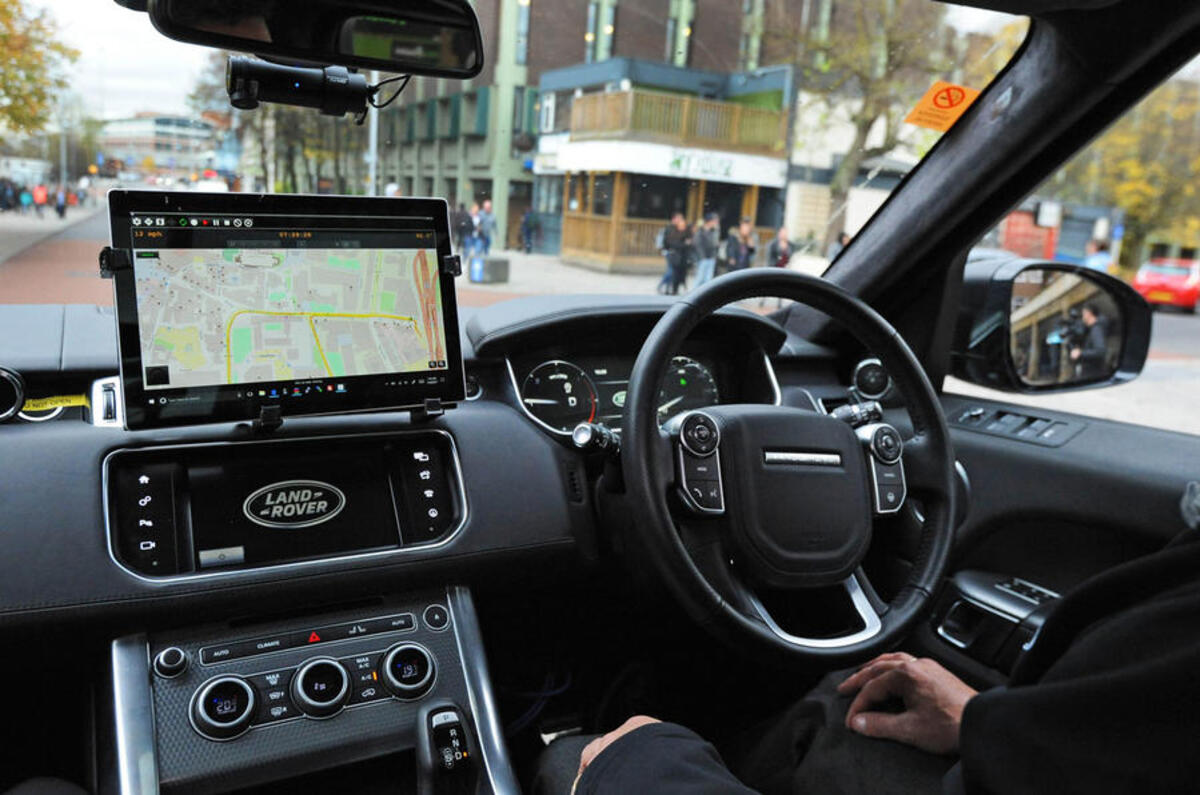Another day, another press release announcing the imminent arrival of driverless cars.
This one reckons they’ll be on our roads by 2021 and sets out to highlight “some of the less predictable consequences” of that happening.
To give you an idea of the angles taken by this attempt at making headlines, these include the threats of underage driving, mass unemployment, an increase in drinking, a shortage of organs for donation and — yes, you are about to read this right — a heightened threat of hostage situations.
Read more: Fully autonomous cars could be a fantasty, says former BMW chief
In fact, it’s quite impressive just how many negatives they have managed to spin from the potential benefits of driver assistance systems.
But, above all, they appear to have overlooked the most predictable part of driverless cars taking to our roads in 2021 — namely, the fact that they won’t be, with the exception perhaps of a very limited number of trial vehicles being operated under very strict conditions.
Let’s be clear: mainstream driverless cars or autonomous cars — call them what you will — are still a generation or more away, if they are ever allowed to happen at all. Maybe, just maybe, it could be possible in designated areas built for that purpose, but the prospect of these vehicles taking on mixed-use roads designed 100 years ago in London feels a very long way away.
There have been some progressive voices expressing concerns about this for a while, most notably Thatcham Research, whose expertise in the fields of safety and security continues to stretch further and further into the boundaries of new car technology. The trouble is that Thatcham's calls for common sense are all too often being drowned out by the hullaballoo surrounding the possibility of the future arriving in our lifetimes.
As Thatcham’s experts point out, what is coming is an increased level of driver assistance, not driverless technology. The fear, of course, is that if we talk in terms of cars being driverless, people will get in the cars thinking that they don’t need to pay any attention. That is categorically not the case in any cars on sale to the public today — and, even with a fair wind, won’t be for another 15 years at least.
Evidence that emerged from several accidents already suggests that people buying cars equipped with driver aids don’t always understand what that means.
Just recently, a study in the US highlighted the obvious drawback of cars boasting huge amounts of driver assistance: that people are responsible for most of the accidents involving them, be it by being at the wheel of other cars that hit them or being the person in the car making the error. Which draws you to the inevitable conclusion that, as long as people are involved, there will be accidents, no matter how clever the computers are. Logic may be able to be programmed, but logic soon runs out in the chaos of the real world.
The next conclusion, then, is that there will be a choice to face.
A brave, wealthy or insistent government or leadership team could perhaps push the development of driverless cars, the required road infrastructure, the legal framework and more, and then tell everyone who owns a car to replace it with one that is driverless so that they can all talk to each other. It sounds unlikely but possible, perhaps in somewhere such as China, where they could potentially benefit from such a leapfrog in standards.
The other option is that an optimum level of driver assistance is reached, and left at just that. In which case, you or I or even our children will never be able to buy a driverless car.




Join the debate
Add your comment
.
I can't imagine fully automomous cars hitting the road in my lifetime, if ever. Perhaps if all cars were autonomous and every road had underground signal cables then maybe. What I do like is the idea of enhanced driver aids. We already have blindspot warning and city braking, take it a bit further. Rather than warning me there is a motorbike in my blindspot when I want to change lanes, stop me doing it (or at least resist me a bit). Stop me pulling out of a side road in front of the car or bike that I haven't seen. Add to my safety and those around me by supplementing the driver, not replacing him or her.
Brave Assumptions
I'm no expert on AI but I think it's a bold move to assume that something is not possible because one doesn't the limitations, or otherwise, of a technology.
Old scenario.....
Ai can make a decision,but judging between knocking down a Person or crashing into a Car, Wall , the Human try to avoid the person at risk to themselves while the Ai will protect the occupants at the sacrifice of the person outside of the Vehicle?, it’s the ethical dilemma, isn’t it?
There’s only so much....
There is only so much that autonomy in Cars can cope with, in certain situations only a human can make the correct choice of action quick enough, plus, I for one wouldn’t feel completely safe sitting in a potentially dangerous Vehicle letting it decide is the best course of action, responsibilities are still going to be ours, full autonomy is decades away yet.....